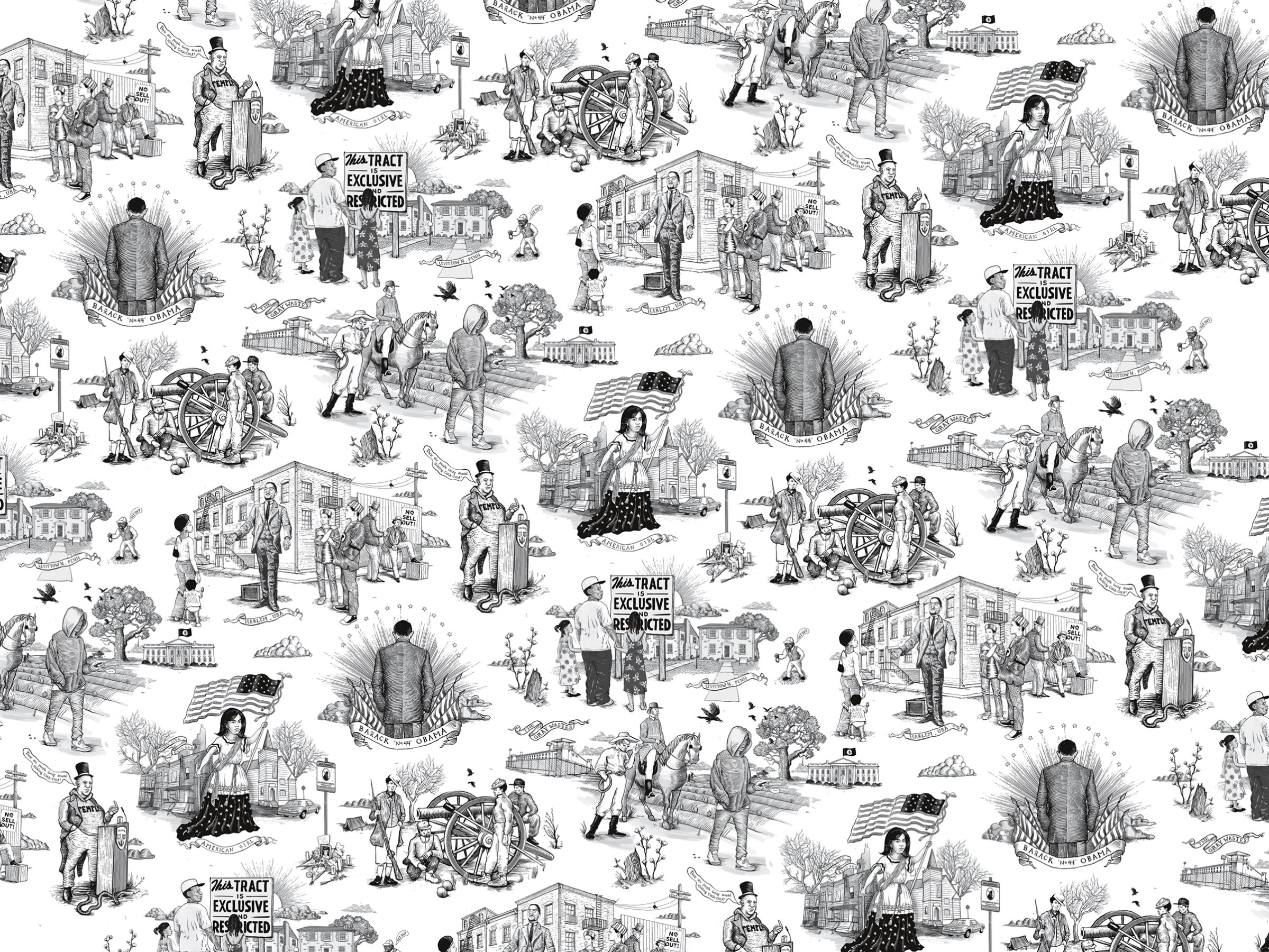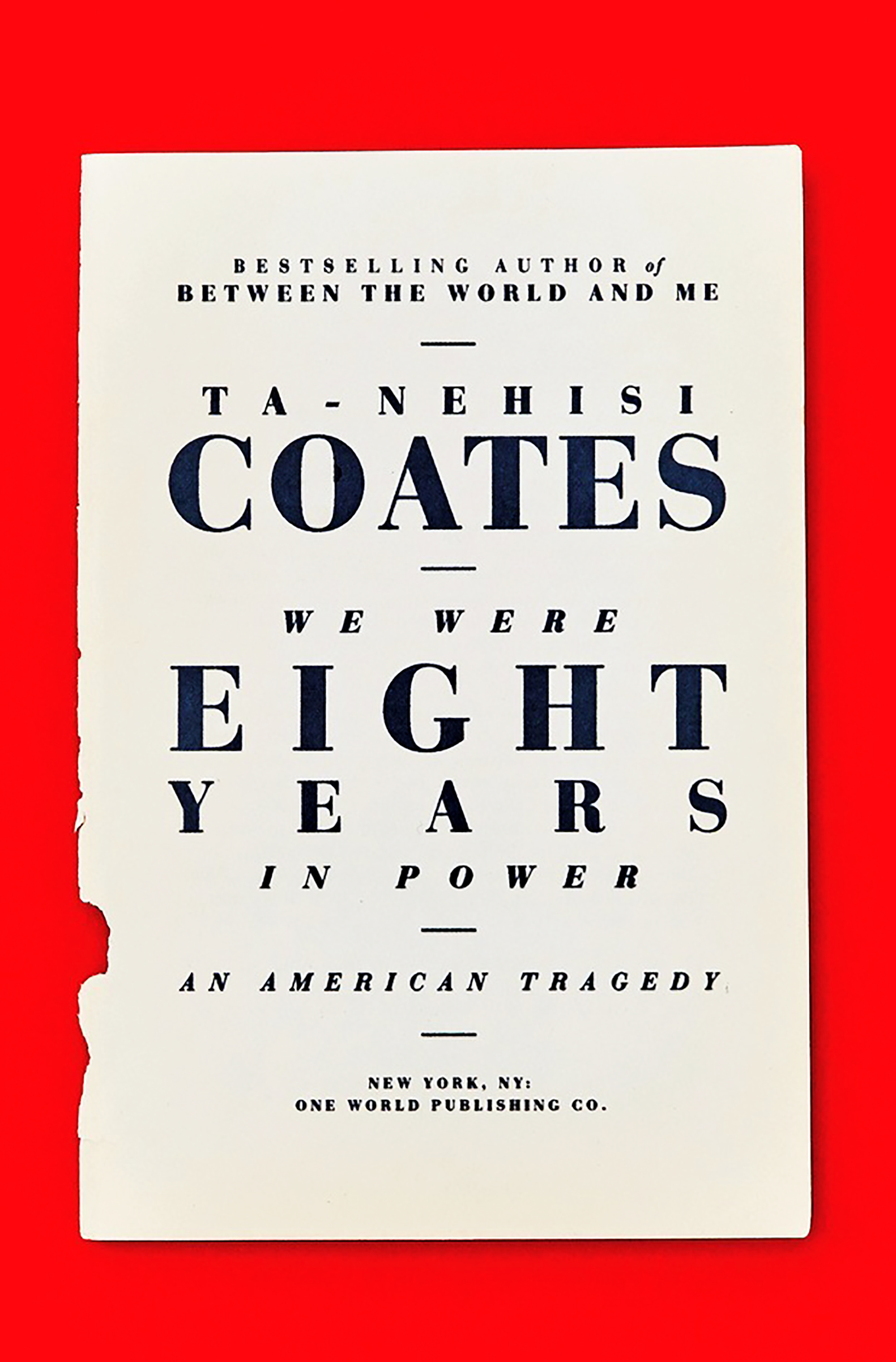
The symbolism in Ta-Nehisi Coates’ new book, We Were Eight Years in Power, runs cover to cover, starting with the binding materials. The book’s endpapers, that wallpaper glued to the inside cover, are both adhesive and cohesive, serving as a visual table of contents and tone-setting allegory.
The design is toile, the whitest of white-bread decor, a textile steeped in colonialism and cotton. Coates chose illustrator Dan Funderburgh’s subversion of the traditional form to complement other historical allusions (including the cover design, which Coates wanted to reference the autobiography of Frederick Douglass). Then there’s the word itself — toile. An e away from “work.”
Eight Years is about the work of black people, and the striving and strife they have lived through in America, and is based on eight columns that Coates wrote for the Atlantic, one to represent each year of Barack Obama’s presidency. “Obama was the realization of generations, a black ambition as old as this country.” But what was the price? Coates wonders. The Atlantic columns are enriched with personal memoir, and a stocktaking, as Coates takes the reader through his own life and reflects on how the columns relate to the present. Now things seem to be slipping scarily back into the past under Trump, whom Coates has dubbed our “first white President.” Obama isn’t so much a subject as a lens. The titular eight years are from a quote by a South Carolina Congressman reflecting on the brief egalitarian respite of Reconstruction, progress that eventually fell victim to racist backlash.

These are themes that Coates has explored throughout his career as a “Black writer,” a mantle that he had been hesitant to adopt but that eventually became a calling — one for which readers of all races should be grateful. “The notion that writing about race, which is to say, the force of white supremacy, is marginal and provincial is itself parcel to white supremacy, premised on the notion that the foundational crimes of this country are mostly irrelevant to its existence.” The notion that reading about race is similarly marginal seems disastrous too. It is foundational to our national identity. Which is why Coates says Trump’s race signaling makes him America’s “most dangerous President — and made more dangerous still by the fact that those charged with analyzing him cannot name his essential nature, because they too are implicated in it.”
No race or gender is a monolith — just ask the women who voted for Trump — and Coates has detractors, most recently and vociferously Thomas Chatterton Williams, who wrote in the New York Times that Coates “fetishizes” race, giving whiteness power. But for those of us who would like not to be complicit in a backward-lurching culture, we can’t “privilege the appearance of knowing over the work of finding out,” to borrow an eloquent Coatesian turn. I’m ready to do the work.
More Must-Reads from TIME
- Cybersecurity Experts Are Sounding the Alarm on DOGE
- Meet the 2025 Women of the Year
- The Harsh Truth About Disability Inclusion
- Why Do More Young Adults Have Cancer?
- Colman Domingo Leads With Radical Love
- How to Get Better at Doing Things Alone
- Michelle Zauner Stares Down the Darkness
Contact us at letters@time.com